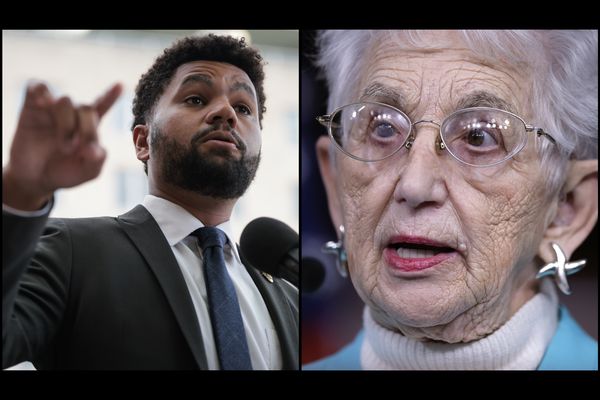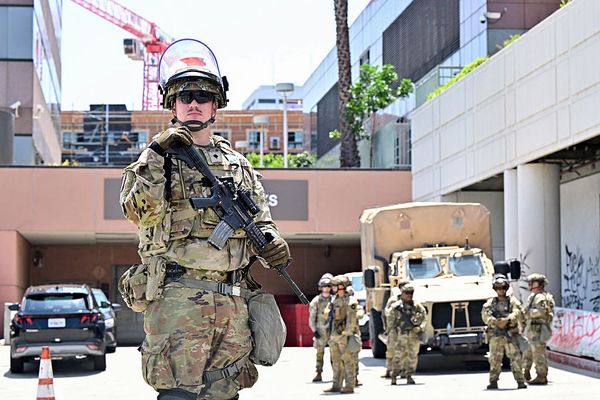
For two weeks Israel has pounded Gaza with missiles, as it gathers tanks and troops for a ground invasion with one stated goal, to destroy Hamas.
It is a deceptively simple target, one which sounds urgent and necessary to many in a nation profoundly traumatised by the massacres of 7 October, hoping to reclaim their sense of security, and a military determined to restore its damaged authority.
“Now we have a lot of pressure from the Israeli population,” a senior Israeli security official said. “We are really trying in headquarters here not to be emotionally irrational in every decision.
“The only conclusion is that we have to go in. We have to go in and clean it and to eliminate Hamas from the roots, not only militarily, but also economically, its administration. Everything should go away.”
But destroying Hamas is a political objective, not a military one. Even if Israel claims success after assassinating senior Hamas figures, destroying their arsenal and tunnels, and dismantling their administration, they have not said what they will do the day after “victory”.
The Gaza strip will still be there, albeit mostly in ruins. The population who survive the war will still be there, mourning new losses of loved ones and their homes. And the poverty and other deprivations that fed Hamas will only have intensified.
The national rage, the massing of military might, looked disturbingly familiar to US president Joe Biden, who warned Israel last week: “Justice must be done. But I caution this – while you feel that rage, don’t be consumed by it. After 9/11, we were enraged in the United States. While we sought justice and got justice, we also made mistakes.”

He did not say which mistakes, perhaps because there are so many devastating ones to choose from. In Afghanistan and later Iraq, the US won the initial battles – as Israel is likely to in Gaza – because of overwhelming military and financial resources.
Yet American agents didn’t reach Osama Bin Laden, architect of the attacks, for a decade. In that time the war in Iraq killed hundreds of thousands of civilians, turned the country into a sectarian bloodbath, and sowed the seeds for the rise of Islamic State. The Taliban fought for 20 years and eventually returned to power, humiliating Washington in the process.
US politicians and military whether from arrogance, naivety or blind optimism, had given dangerously little thought to what might come after they humbled their enemy.
Israel appears to be heading down a similar road, with a leadership that has not defined what victory looks like and has made no plans for how the enclave might be run when any military campaign ends. It will be in ruins, with thousands dead at least, possibly tens of thousands, and the surviving population deeply traumatised.
There is little appetite in Israel to administer Gaza directly. Its troops left, forcing settlers to come with them, nearly two decades ago, because even hardline prime minister Ariel Sharon did not think an indefinite occupation would be sustainable. After this brutal war, there would be even more resentment and hostility. Nor does Israel want the corrupt, sclerotic Palestinian Authority to run it because it worries about unity between the separated fragments of a potential Palestinian state.
“Israel in all cases wants to prevent the integrity of the Gaza strip with the West Bank. They only support division,” said Jamal Zakout, former adviser to Palestinian PM Salam Fayyad. “Israel has no strategy for any political solution including what they want from Gaza in future, before or after this war.”
Even if the Palestinian Authority could be pressured or bribed into considering taking control, it is far from clear if they would be accepted, or able to do it. A government installed by the Israeli military would not be seen as legitimate. The PA are already widely resented in the West Bank for their weakness in the face of Israeli authorities, for being inefficient, unrepresentative and riddled with corruption. And though the majority of Gazans were not old enough to vote when Fatah lost elections to Hamas in 2007, there is no reason to think they have become more popular. The only idea floated by Israeli politicians and officers for Gaza’s future, an international peacekeeping force, seems rooted more in wishful thinking than reality.
“It seems that the war is going to be very, very long and we have to take into account the hostages, the risk of conflict spreading into the wider region, the erosion of support and the question to whom we are going to pass control in Gaza – for example if we have to pass it potentially to some Arab-led multinational force,” said former prime minister Ehud Barak.
The senior security official suggested regional powers would have a self-interest in paying for Gaza’s future. “We need goodwill from our neighbouring countries because they know that it’s destabilising the region as a whole. Those countries with money, with assets, should invest in Gaza,” he said.

But there is no indication that they would want to be drawn into the expense and political exposure of running Gaza, essentially on behalf of the Israeli government. Many countries are already financially strapped , dealing with domestic unrest exacerbated by rising costs of living, and have hosted large numbers of Palestinian refugees for decades.
Many people in the strip and across the region fear that hardline Israelis are not planning for a future administration in Gaza, because they want to empty it of Palestinians entirely.
“[The scale of death] shows that what is happening in Gaza is only targeting civilians and its main purpose is to displace Gazans to southern area of the Gaza strip, and maybe to Sinai,” Zakkout said, describing the military campaign as “ethnic cleansing”.
They see in the frantic march out of Gaza city echoes of the Nakba, the Arabic term for the forcible expulsion of about 750,000 Palestinians from what was previously British mandate-controlled Palestine during the creation of Israel in 1948.
A tent city in Sinai for Palestinians is an idea with a long history; former deputy defence minister Danny Ayalon said Gazans should “clear the area temporarily”.
The Israeli security official admitted that the army has no idea how to fight this war without radicalising a new generation of young Palestinians.
“I wish I had the answer. It’s a one million, one billion dollar question. Because if we knew the answer, we would have done it many years ago. We don’t have the correct answer to that, but we think that we have got to the bottom of the barrel, that nothing can get worse than this.”
That kind of naive fatalism drove Americans trying to fight al-Qaida and sectarian militias with violence and torture; their policies fed an even greater monster, one Netanyahu uses to describe Hamas: Islamic State.







